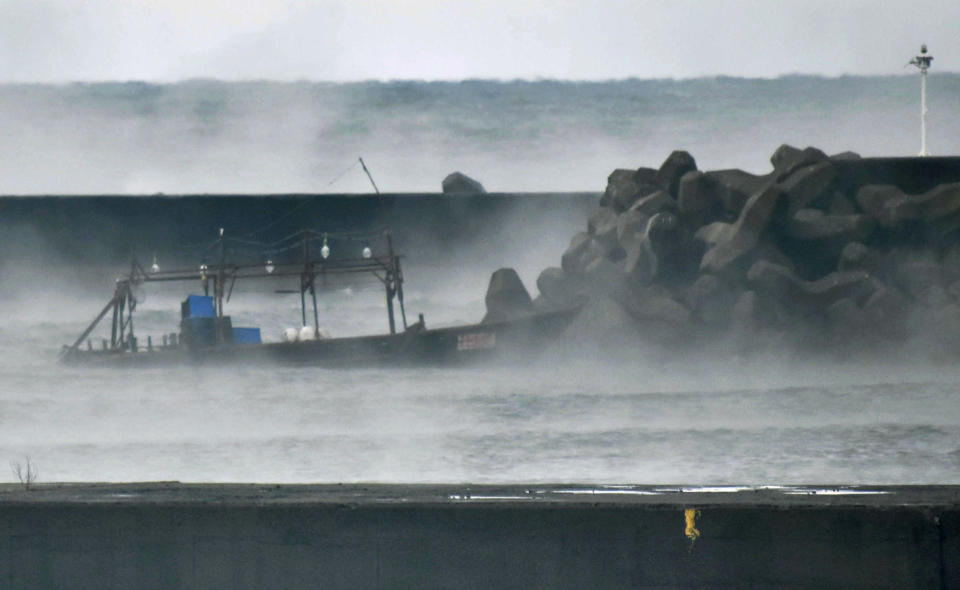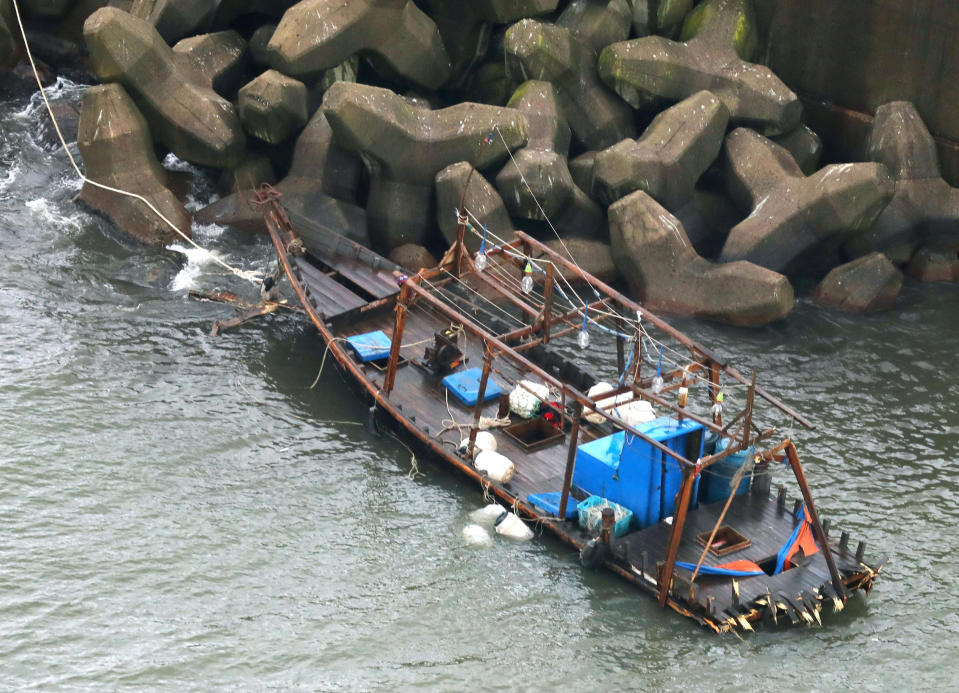Ten decomposed bodies wash up on Japanese coast across from North Korea

Ten decomposed corpses have washed up on the coast of Japan across from North Korea along with the remains of two boats.
The bodies washed up in two separate spots on Sado Island, 750km away from North Korea, the same area that eight fisherman living under Kim Jong-un’s regime drifted ashore a few days before.
A senior local police official said that the bodies had nothing to identify them, but boxes of North Korean tobacco were found nearby as well as life jackets with Korean script.
Another boat with squid fishing equipment was found wrecked close by.

Further North in the Akita prefecture another boat containing eight bodies was seen around the same time by authorities, who were prevented from investigating by high waves.
They said that they had encountered difficulties with their ship and entered Japanese waters unintentionally.
Most popular on Yahoo News UK
Meghan Markle and Prince Harry are engaged
Welder’s 17.8-tonne dragon made of HORSESHOES goes on display in sculpture park
Vigil held as three children and two adults who died in Leeds horror crash are named
Surgeons shocked to find 263 coins and 100 nails in stomach of man with suspected food poisoning
The Japanese government said it believed that the men were sailors, rather than spies or defectors. Some media outlets reported that the men wished to be returned to North Korea.
Dozens of fishing vessels, often basic wooden structures, wash up on the coast of Japan every year after drifting across from North Korea.
Sometimes bodies are found on board, suggesting vessels have been adrift for a long time. These are referred to as ‘ghost ships’.
It is unlikely the people on board these ships are trying to defect, given the distance from Japan and the cultural and linguistic differences.
Dr John Nilsson-Wright, head of the Asia Programme at think-tank Chatham House told the BBC: “It wouldn’t make sense if you were a defector to go to Japan. South Korea is much closer by boat.”

 Yahoo News
Yahoo News 
